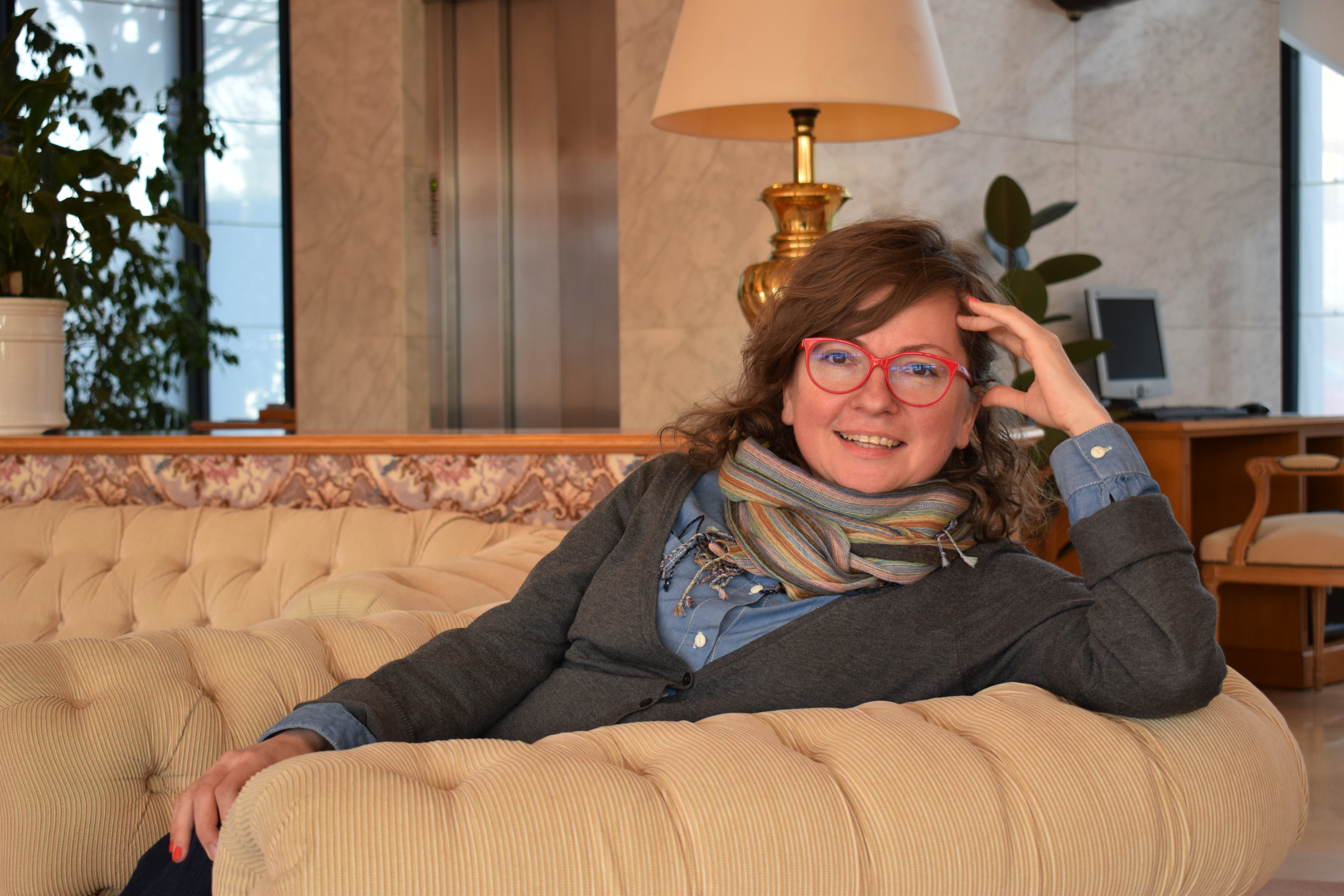Collective residencies / URBAN PLANNING / Olot
ANGELINA DAVYDOVA
From Wednesday, 10 January 2018 to Sunday, 21 January 2018

Bio
Born in 1978 in Saint-Petersburg, Russia. MA in Economics from the St. Petersburg State University of Economics and Finance. More than 10 years professional experience of working with Russian and international media (including Kommersant, Reuters, the Science Magazine, The Conversation, Open Democracy, Kilmaretter.info etc) . Reuters Foundation fellow at the Reuters Institute for the Study of Journalism, Oxford University (2006). Participant of the Beahrs Environmental Leadership Program (ELP) at the University of California, Berkeley (2012). Since 2006 – project manager with the German-Russian Exchange (www.austausch.org), head of the German-Russian Office of Environmental Information (www.rnei.de). Since 2008 is an observer of the UN Climate negotiation process (UNFCCC). Teaches at the Faculty of Journalism, St.Petersburg State University http://eng.jf.spbu.ru/
Project
During my stay at the Faber Residency I would like to learn more about how smart city technologies combine with (or contribute to) green and sustainable developement in the case of Catalonia. I would especially like to concentrate more on the medium-sized cities and explore their potential for sustainable and smart development. It is very often that nowadays when we speak about ‘green’ cities we tend to think about big megapolises — however, sustainable living is also about cities of various sizes and kinds, and very concrete application of the sustainable development concept would also vary dependant on what kind of city are we talking about. I would also be interested to know more about both theoretical approaches and their practical implementations, as well as about best cases — along with failures. I am persuaded that they all can provide us with an extremely valuable experience for future implementations and developments.
11 Days in January
It took me four hours to come to Barcelona with a plane from St. Petersburg, another day to feel myself at home in Catalonia, 24 hours short of sleep and full of walks without looking at a map, sitting in street corner cafes observing houses, birds and people.
It took me further 1.5 hours to come on an early evening bus to Olot, the capital of the volcano country, la Garrotxa, with its colder and crispy air, early sunrises for which I was always late, long sunsets with clouds stretching themselves against the skies, washing them up till a darker color with starry holes appeared.
The bus took me to a brightly-lit hotel where a group of individuals who had come from various continents, had crossed various seas and oceans, had travelled through languages and passport controls – were waiting for me to say their names out loud.
Artists, film makers, architects, urban planners, scholars – all brought together for the next few days to share their breakfasts and dinners, to speak about cities, people living there, people dreaming and building new houses and forms, people protesting and people creating, people loving each other, people happy and sad.
We spoke about our environments, we spoke about food, about our love life, our ‘big projects’, our aspirations, our experiences of opening up this world through our eyeholes and finding the words in a language not native for the most of us.
We taught each other new sounds, we invented new words, we learned how to make Catalan tomato bread, we drank black wine and played with white beans.
We travelled to the medieval villages with persimmon trees, we went down across the valley to a cow farm to count the cows, to see them milked, and to savor that milk. We entered a house of a local furniture-maker who also turned out to be a sheep-breeder and an owner of a talking dog. The latter looking as experienced of a resident of this world and this area as the former – turned out to be a local TV celebrity. We saw him barking the numbers and the colors.
It felt very cozy and warm driving around the valley surrounded by pre-mountains through which you had to drill and get into and out of the tunnels leaving dim twilight into the bright night back in Barcelona.
But in Olot we were also learning about the land around us, looking at it from the top of the old volcanoes, so old that no one would consider them to be of danger anymore, just large extinct formations of land and minerals and dust mixed into no-man-made landscapes rare at the times of Anthropocene.
We invented cities, well, at least I did.
We invented stories – and they are still to come.
We sang (once), we did a cheese tasting party, we watched a film about Jane Jacobs.
Some of us came to say goodbye to a bus station bringing with us the very typical biscuits of the region to chew onboard.
We crossed the fields with winter vegetables still to be seen in other people’s orchards, we soaked in the sunlight and left with all that new luggage back home with our eyes enlarged from new life tucked away in-between the hills with scattered old stone houses opening up their doors into new encounters.
Every day and hour in Olot was about weaving a thread which you cannot see or touch. A thread which you pull with yourself elsewhere out to the world, back home where the snow is, back to your normal life if you have it or out to further trips. This thread always connects to the places you have been to and if you pull it slightly — maybe with unlocking your memories or looking at the photos or telling your friends about your travels – straight away you’re being carried back there. Transport planners still have not come up with a name for this mode of transportation, but this thread covers this planet with many unseen routes merging into a network. And it is us, travelers and residents, who are paving it.
